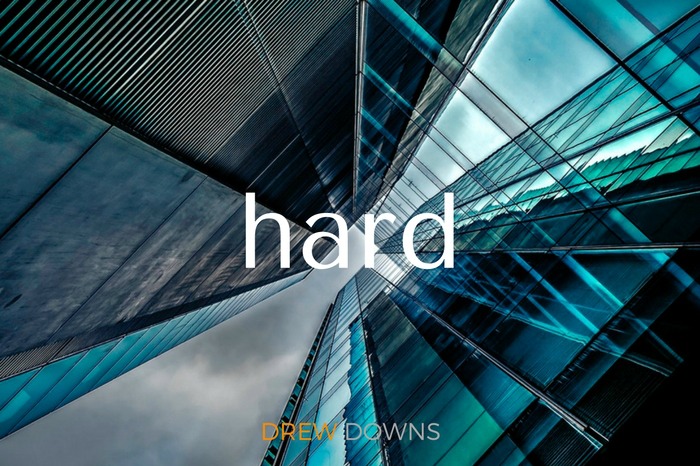I wrote over a thousand words, trying to rationalize decision-making in the midst of bad choices. And it was all very sensible.
And an utter crock.
Because sometimes, we’re stuck with complete and total junk.
Some of you might be thinking of the election. That’s fine. But there are many more choices that are far junkier.
Like choosing to sell plasma or starve.
Or choosing to break the law to protect lives.
And let’s be honest, most of our theology is riddled with decisions between bad choices. Just look at the Jesus wars and the battles over the Trinity.
The trouble with bad choices is that they haunt us.
Sometimes for a few days and sometimes far longer.
We’ve seen a fascinating example of this in the election cycle around the 1990s Crime Bill. A law, passed with bipartisan and large minority support has come under intense scrutiny now.
Why?
Because it led to some terrible problems, particularly issues with mass incarceration, the private prison industry, and the spate of three-strikes laws.
It is a fruitful example, not for us to wade into the weeds of it, but to notice how a popular decision can be serious problem later. And seriously unpopular.
And in this case, a seriously haunting horrible problem.
So how then do we make choices?
We make our choices ideologically pure.
Or more precisely, we choose between pure ideology and pure rationality or between pure ideology and science. Or math.
For example, our debate around sex education is not a rational one. It isn’t two sides making rational arguments. It’s raw ideology against rationality.
The numbers prove raw ideology is bad policy. But rationality may not lead to a just conclusion on its own.
Our solutions are often ideologically mixed.
Before the push in the ’00s for “abstinence-only,” our sex ed was already a mix of science-based reason and moral ideology. It encouraged healthy relationships and discouraged sexual activity in general.
It was never pure rationality. But Abstinence-only education pushed pure ideology.
Solid sexual education in schools is a perfect example of dealing with a bad hand: trying to get as few people having sex as possible, protecting those who will have sex anyway, and educating our children for when they become sexually active in the future. It’s fighting a losing battle if the best we could muster is a warning about hairy palms.
And yet, thousands of teachers all over the country have success teaching our young people what is the most challenging subject by focusing on health, relationships, and science.
This approach is full of compromise and is predicated on this mixed-economy of thought. It balances morality and education with public policy which reduces risks and encourages healthy decision-making.
Sex ed is just an example of how we as a society handle decision-making and teaching it to our children. There are many more.
But there is one universal problem which makes this kind of decision-making that much more difficult.
We insist on making each other’s lives harder.
We don’t always make healthy decision-making our priority. And worse: we take away those decisions for others. And the biggest decision-stripper is poverty.
A special series called “Busted: America’s Poverty Myths” deals with the problems of poverty, not the platitudes. It deals with the ramifications of policy and the challenges people face. How decisions are often made for us. Or we are left to find any hope in the face of complete despair.
Produced by the radio show, On the Media, “Busted” names the struggles of poverty and all the ways we have chosen and continue to choose to make things harder for the poor. And how we are all connected. Content to judge, rather than encourage. Let alone help. I really encourage you to listen to it.
Avoid the false choice.
There are practical ways to deal with making decisions when all of our choices are junk. Chip and Dan Heath have a fantastic book on decision-making called Decisive. Read that.
But the spiritual and moral response is to not only find the place of least worst, but also signs of hope and opportunity.
Faith is more than standing firm on rigid ideology or placating a culture which distorts the very image of God we all possess.
It is finding God and making peace. It is building the Kin-dom and trading in its currency: love. We make the great commandment our measuring stick and the great commission our guidance.
Sex and violence and war and elections and economics and the environment and labor and health and all the ways we fight and torment one another is junk if we do have our Jesus filter. Not to make ideological stands or to pat ourselves on the back for being right or arguing on the internet about how wrong I am.
But to filter this world to see where God is at. And what God would have us do with all our hot buttons.
Knowing tradition can be wrong.
And culture can be wrong.
Even scripture (and how we read it) can be wrong.
But there’s a reason we have a Light in the darkness. Who can never be consumed. Lighting our way, shining on injustice, encouraging our hope.
A Light for us and for the world.
* * *
This is from a series on Choices. We have plenty more choices to make!


Leave a Reply